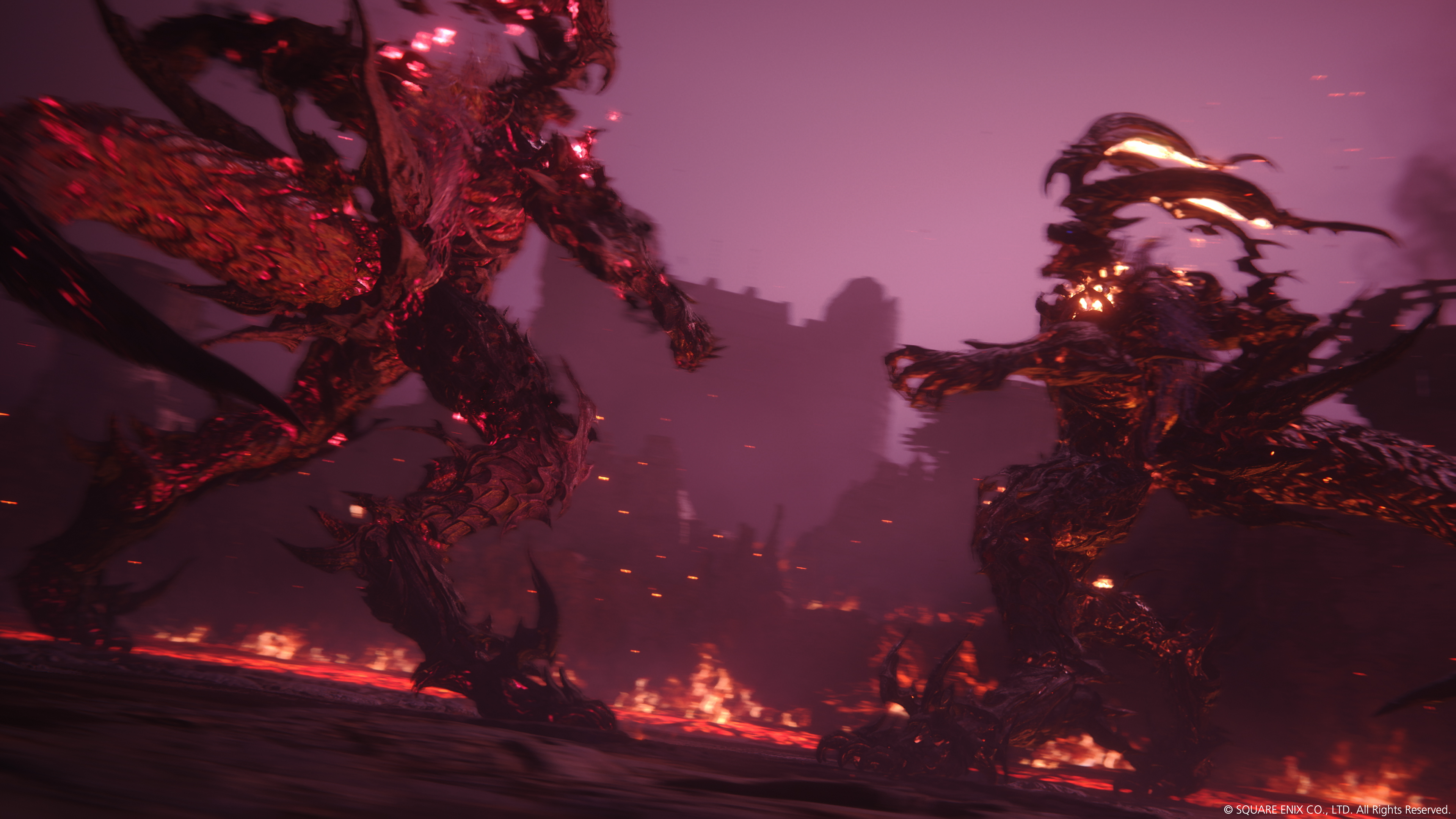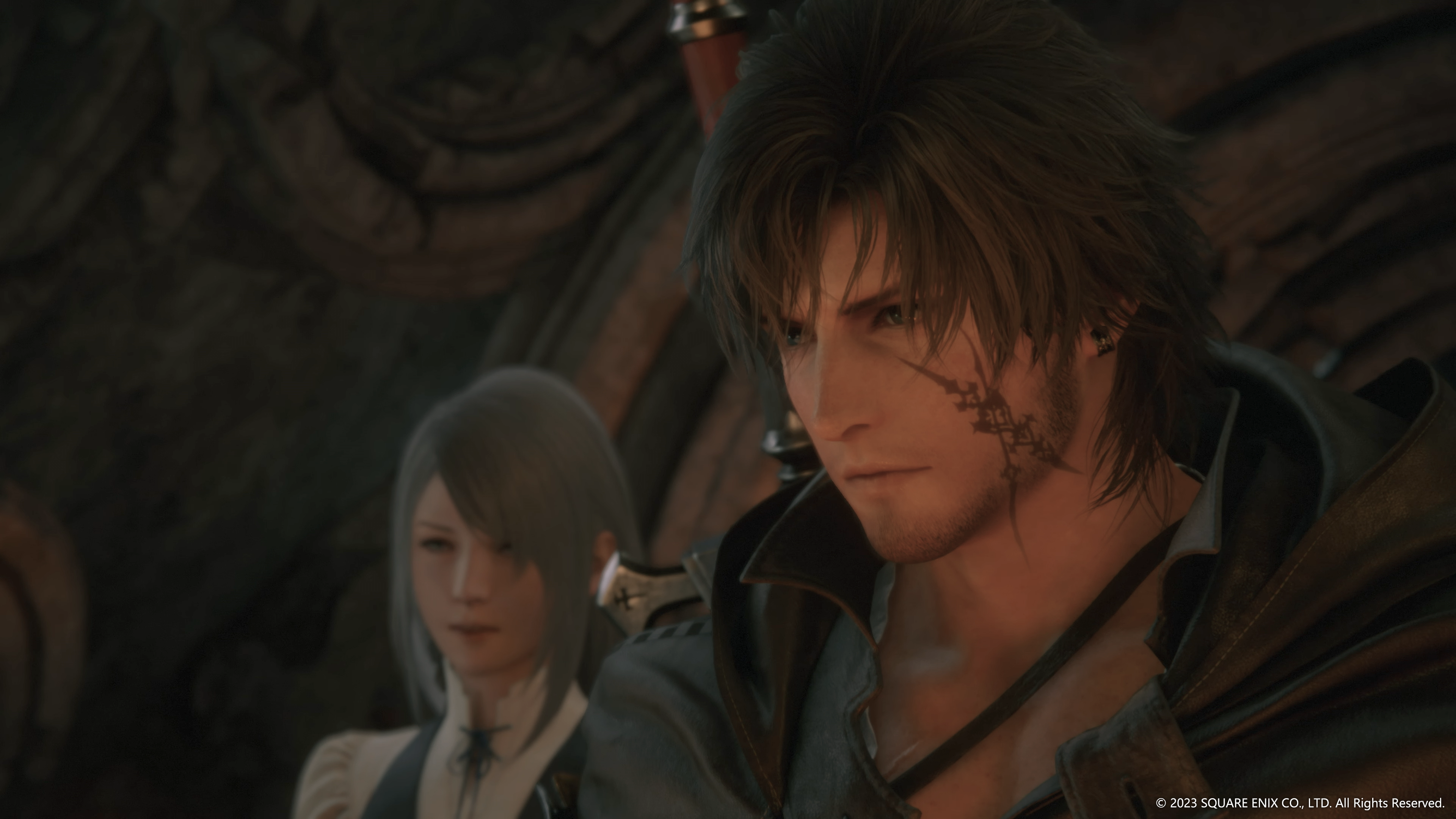If there was ever a game to display the power and potential of the PlayStation 5 hardware, Final Fantasy XVI is that game. Boss battles define what is possible with cinematic combat. Whether you’re dodging enemy attacks and performing over-the-top combos or engaging in literal kaiju-monster battles, the highs of this game are exceptionally high.
Then, immediately following those boss battles, you’re performing mid-2000s MMO-style fetch quests because you and you alone are the only person who can go collect dirt.
If this is the future of Final Fantasy, I don’t want any part of it. The combat has nothing to do with it. FFXVI is a poorly paced, confused mess of a game that stubbornly follows its inspiration to a fault.
Let’s not beat around the bush: there’s a lot to like in Final Fantasy XVI, but you also have to wade through a lot of crap to get there.
The Nations of Final Fantasy XVI Set up an Intriguing Story
Square Enix was never shy about how much influence Game of Thrones has over FFXVI. Anyone familiar with the popular HBO series, based on the A Song of Ice and Fire series of novels by George R. R. Martin, can spot familiar story beats and character traits. This inspiration helps set up a world of political turmoil.
Taking place in the world of Valisthea, six nations spar for control. Each nation’s power resides from accessing magical Crystals. Their armies are led by Dominants, who can summon Eikons, which are essentially demi-gods based on popular Final Fantasy characters. Our protagonist is Clive Rosfield, the firstborn son of Rosaria’s ruling family and Joshua’s older brother. Joshua is Rosaria’s Domaint of Phoenix, and Clive is his shield.

This relationship and the world’s dependence on these magical crystals are the foundation for Final Fantasy XVI’s narrative. Clive is an incredibly nuanced hero who defines himself based on his successes and failures. Despite being born into a ruling family, he still faces constant hardships. Ben Starr, who voices Clive, is the star of the show here. While the writing is uneven, his performance helps elevate Clive as a protagonist. Equally impressive is Cid, voiced by Ralph Ineson.
Square Enix spared no expense regarding the presentation, and it’s worth every penny. Cutscenes and dialogue between characters are a massive part of the game, and the presentation makes everything more bearable. This isn’t the problem with FFXVI’s story and reliance on cutscenes. The issue is poor pacing and a huge drop-off in quality in the third act.
Intriguing Narrative Plotpoints All But Disappear
For a game that tries to set itself as a darker, more mature fantasy compared to previous series entries, Final Fantasy XVI does a great job of delivering that promise. The game’s first act spends a lot of time setting up the chess board, putting the pieces in place, and introducing you to all the important characters and their motivations. A lot of information is thrown around, and it’s easy to get confused. The new Active Time Lore feature allows players to pause cutscenes and learn relevant information about the characters and locations on-screen.
Given that the game is 75% cutscenes, that’s not an exaggeration either; there is a lot of story happening here. For the most part, it’s super enjoyable. Don’t be surprised if you’re comparing the characters in the game to who you remember from Game of Thrones. It helps make them a little more relatable, especially since we’re not spending as much time with them as I would have preferred. The downside is that you can see some of the plot’s twists and turns coming a mile away.

Sadly, it also takes a page from the end of Game of Thrones and sees a gigantic drop in quality. I’ll keep it spoiler-free, but it’s almost as if Square Enix pulled a page from Vince McMahon’s book from the Higher Power storyline. “It was me, Clive! It was me all along!” What makes this even worse are the plotlines that disappear. Final Fantasy XVI was tackling serious real-world issues. The story dealt with the dangers of nuclear weapons, the world’s dependence on fossil fuels and how it affects the environment. It even made an interesting attempt to tackle racism, which is impressive for a game entirely made up of white people. Yet this third-act twist tosses all that aside for an entirely different story the developers would prefer to tell.
Thankfully, the game’s combat is an absolute blast.
Boss Battles Are The Best Part Of Final Fantasy XVI
Much has been made about the game’s transition to a Devil May Cry combat style, ditching the franchise’s traditional JRPG roots. This shouldn’t be a surprise, given that Ryota Suzuki, best known for his work on Devil May Cry 5 and Dragon’s Dogma, is FFXVI’s combat director. The result is an over-the-top, accessible style of gameplay that lets the player deliver impressive and satisfying combos. Boss battles will take things one step further, introducing kaiju monster-style encounters that need to be seen to be believed. Whether it’s these Godzilla-like battles or the more traditional combat arenas, the boss encounters are far and away the best part of the game. They’re so good that they cast a huge shadow over the rest of the combat.
Given the game’s linearity, you’ll spend most of your time in a mission walking through a corridor, dealing with spongey enemies waiting to be on the receiving end of your combos. There’s a lot of fun to be bad, mixing and matching different abilities you obtain throughout the game, but once you find that absolute best build, things start to get really shallow. You can acquire items and gear throughout the game, but there’s no depth to be found here.

You’re increasing the numbers on your stats or damage or reducing your cooldowns. I want to preface this by saying I don’t mind the transition from turn-based to real-time combat. What’s disappointing, though, is removing any amount of RPG depth or strategy to it. Fire abilities don’t have diminishing returns against fire enemies. There are no weaknesses to exploit. You’re just mashing buttons in the correct order as you dodge incoming attacks. It’s fun, but it also gets pretty stale.
Part of me wonders if I had so much fun with the boss battles since the rest of the game’s missions are incredibly bloated. It shouldn’t be surprising to see MMO-style missions from a development team with an MMO background, but the genre has seen a lot of innovation in this regard. Instead of that innovation, Final Fantasy XVI’s quests are a massive step backward. I’m all for pacing in a game; I think too much of a good thing is inherently bad. Like a roller coaster, building momentum and traveling back up a hill is important before the next exhilarating drop. The problem here is that Final Fantasy XVI includes the 3-hour wait to board the roller coaster in its pacing. Because of this, there were stretches of gameplay that were an absolute slog and chore to get through.
Wrapping Up
I could spend all day talking about Final Fantasy XVI. I understand why it has its fans, as there’s a lot to enjoy here. Some will be okay with sitting through the game’s many issues to get to its high points. One thing that stands out to me, though, is trying to figure out whether or not we’d care about this game if it didn’t have the Final Fantasy moniker.
Again, I’m not raising an issue with the game’s combat; it’s easily the best thing going here and the only thing that kept me going until the credits rolled. I’m talking about how the game constantly gets in the way of the player enjoying themselves. Titles like Elden Ring and Tears of the Kingdom have done an incredible job giving players agency to explore the world and make their own adventures. That’s a little more difficult to pull off with a narrative-driven game like Final Fantasy XVI, but it’s still possible. Sadly, Square Enix drops the ball here. I want to experience more action, boss battles, and political intrigue. Instead, I get a shallow yet enjoyable combat system that removes everything I love about Final Fantasy: the politics, the party system, and the strategy. To me, that’s a pretty big dealbreaker.

